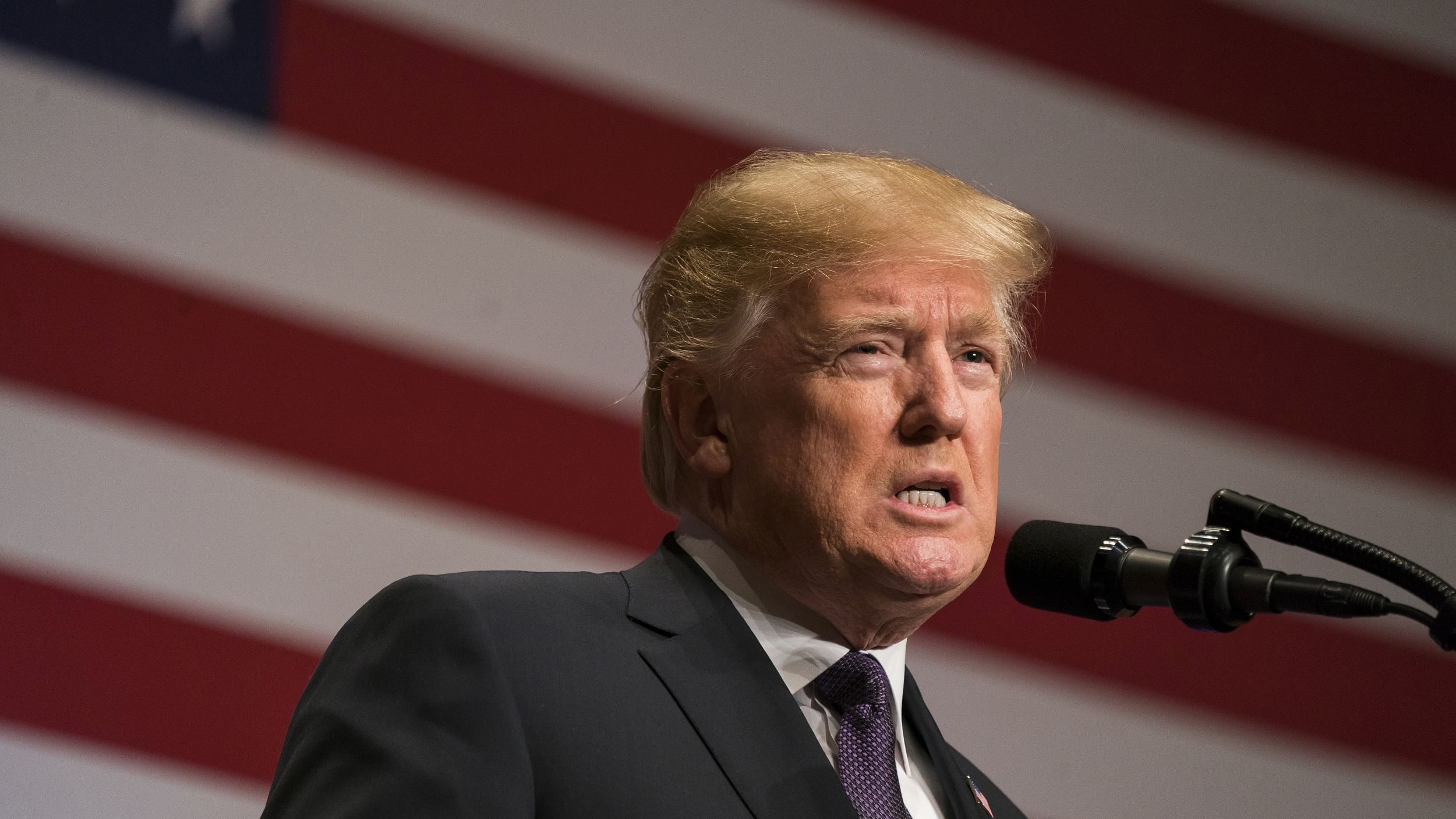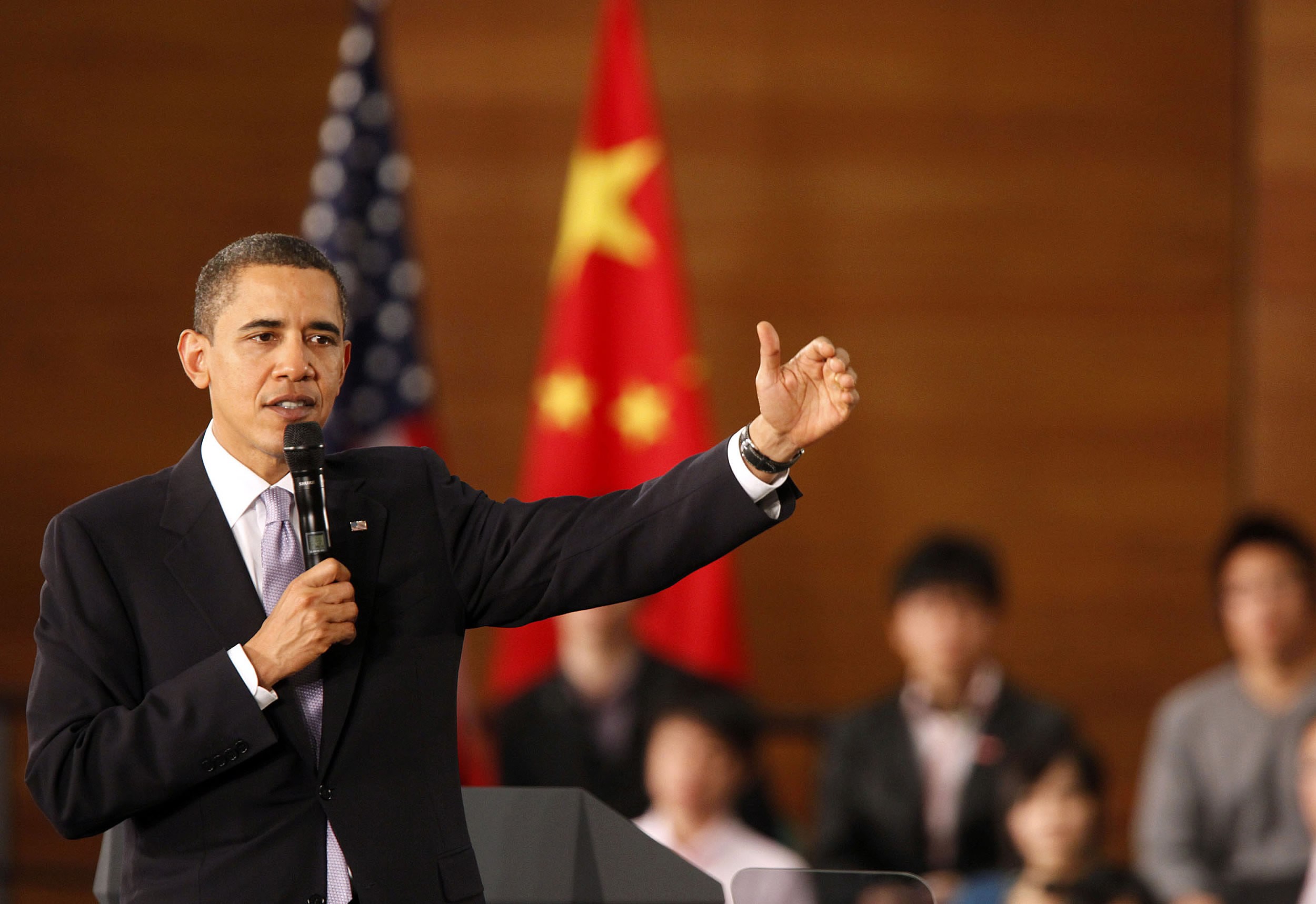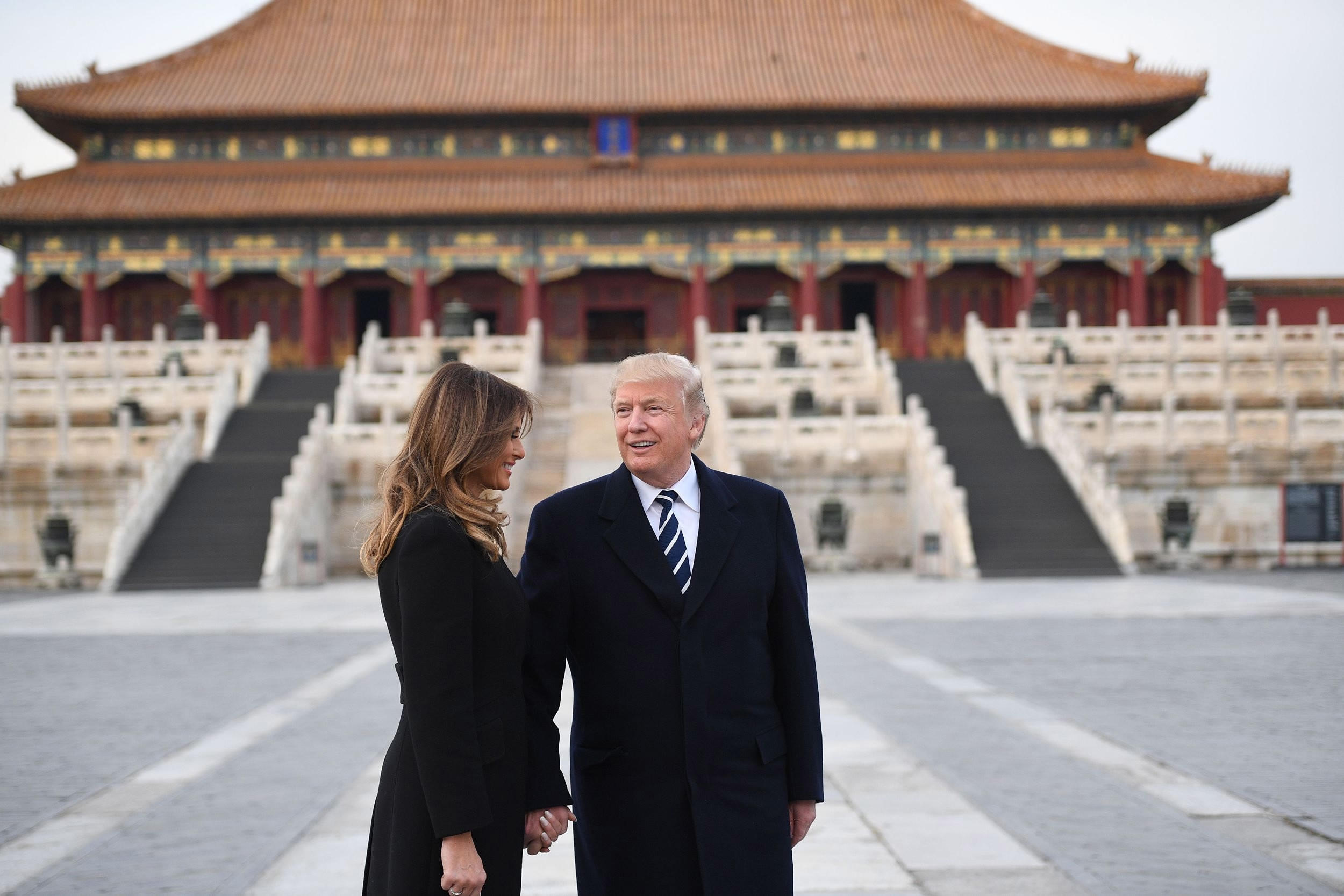
Business
17:05, 19-Dec-2017
Trump's security strategy: When cooperation with China turns to competition
CGTN's Nicholas Moore

US President Donald Trump released his national security strategy (NSS) on Monday, focusing on safeguarding the American economy from what it calls unfair practices led by “revisionist powers,” namely China and Russia.
By singling out China and Russia as competitors, the document strongly emphasizes what Washington sees as economic threats to “American security and prosperity.”
While a lot of the content has been repeated time and time again by Trump, does putting such Cold War rhetoric into writing change anything for China, its economy and its businesses?
What is the national security strategy?
Since Ronald Reagan’s presidency, every US administration has released its own NSS document, a general blueprint for safeguarding US security and preserving the US’ status and standing in the world.

Photo via whitehouse.gov
Photo via whitehouse.gov
While George W. Bush and Barack Obama simply passed their papers on to lawmakers with little fanfare, Donald Trump chose to mark his administration’s strategy with a ceremony in Washington DC, outlining his achievements over the past year, as well as criticizing the failings of past presidents.
Is the economy always a big part of the NSS?
“Economic security is national security,” Trump said in November, underpinning how closely the administration links the economy with its America First policies.
While Trump blames China and Russia for economic struggles at home, Obama and Bush sought to look internally for solutions.
For example, Obama’s 2010 NSS focused on enhancing education, innovation, sustainable development and spending taxpayers’ money wisely.
That document only mentions China 10 times, and states that the China-US relationship is “essential to address the major challenges of the 21st century.”

The NSS released by the Obama administration in 2010 was in favor of closer ties with China. /VCG Photo
The NSS released by the Obama administration in 2010 was in favor of closer ties with China. /VCG Photo
Even the Republican Bush administration’s 2002 NSS was very vocal in its support for free trade, global development and China’s 2001 entry into the World trade Organization.
What has changed under Trump?
For Trump, China is now a rival in “an arena of continuous competition.” While the NSS itself does not explicitly use the words “strategic competitor” to describe China, it calls it a “revisionist power” intent on shaping “a world antithetical to our interests and values.”
China, mentioned 23 times in the latest NSS, steals “US intellectual property valued at hundreds of billions of dollars” according to the document, and is “is gaining a strategic foothold in Europe by expanding its unfair trade practices and investing in key industries, sensitive technologies, and infrastructure.”
Competition has clearly taken over from cooperation as the buzzword of Trump’s national security policy.
Beyond taking aim at China and Russia and insisting that trade is only conducted on what the US dictates as “fair and reciprocal” grounds, the NSS is opaque when it comes to domestic economic policy details.
Beyond Trump’s controversial tax reforms, the document mentions improving infrastructure, boosting education and reducing the US debt burden through fiscal responsibility, but never goes on to say how these three “priorities” will be achieved.
How could China react?
As of Tuesday afternoon, the Chinese Embassy in the US had already put out a statement saying “cooperation between China and the US will lead to a win-win outcome, but confrontation will lead to mutual losses.”
George W. Bush used the term “strategic competitor” to describe China when he first took office. Anger from Beijing forced him to drop the term when his administration published its NSS in 2002.
Further comment is expected from China, but for Trump observers the NSS document should not be a major surprise. The president’s campaign trail and first 10 months in office have seen strong and at times shocking rhetoric, little of which has been backed up by policy change.
Does this change anything?
Trump’s flip-flopping when it comes to China – swinging from lavishing praise on the country and President Xi Jinping to criticizing it for what the US regards as economic malpractice – has produced a lot of noise but little action.

President Trump and Melania Trump during their visit to Beijing in November 2017. /VCG Photo
President Trump and Melania Trump during their visit to Beijing in November 2017. /VCG Photo
Beijing will be more than aware of the influence of various China hawks lingering around the White House, such as trade negotiator Robert Lighthizer and head of the trade council Peter Navarro, and has responded with restraint to various threats from the US during 2017.
Until it becomes clear how the US will raise its "competitive game...to protect
American interests," as stated in the NSS, there is little else for China to do other than to maintain the status quo and go on voicing support for the win-win China-US relationship.
However, being labelled a rival, a competitor and even a thief in an official document will sting, and that might just mean China won’t be so forgiving this time around.

SITEMAP
Copyright © 2018 CGTN. Beijing ICP prepared NO.16065310-3
Copyright © 2018 CGTN. Beijing ICP prepared NO.16065310-3